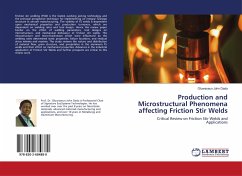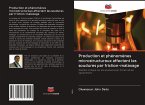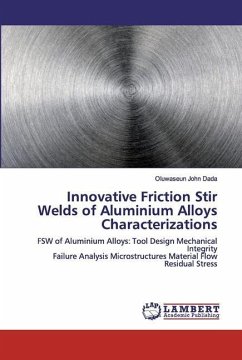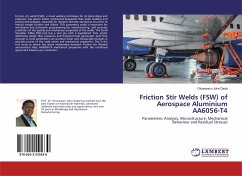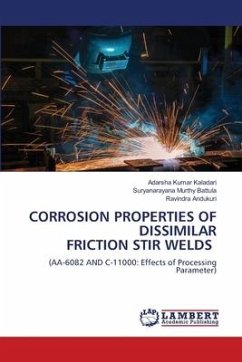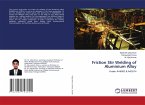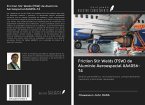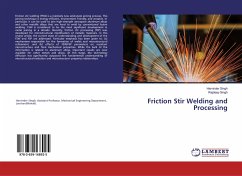Friction stir welding (FSW) is the fastest evolving joining technology and the principal prospective technique for implementing an integral fuselage structure in aircraft manufacturing. The viability of FS welds is dependent upon mechanical properties and production turnovers, which are dependent on welding rates and tool design. Hence this review paper border on the effect of welding parameters, tool designs on microstructure, and mechanical behaviour of friction stir welds. The microstructure and micro-hardnesses which were influenced by the welding rates determined static properties, failure locations, and residual stress minima and maxima. The study reviews the nature and distribution of material flow, grain structure, and precipitates in the aluminum FS welds and their effect on mechanical properties. Advances in the industrial application of Friction Stir Welds and further prospects are critical to this review work.
Bitte wählen Sie Ihr Anliegen aus.
Rechnungen
Retourenschein anfordern
Bestellstatus
Storno

